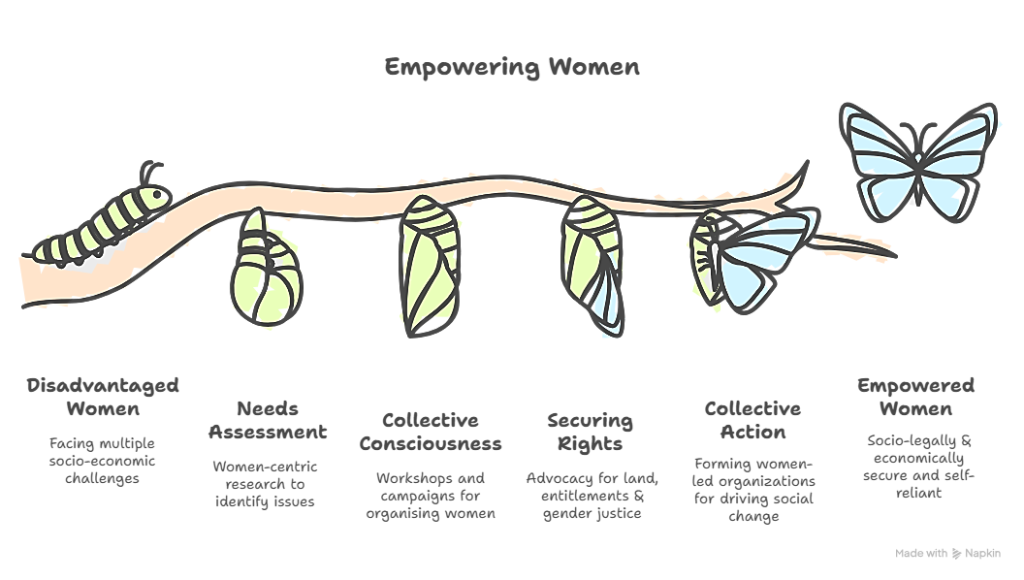Women’s Empowerment
ARPAN’s approach to women’s empowerment is grounded in participatory engagement and collective action, enabling marginalized women to lead and shape their own destinies. By mobilizing women, building their leadership, and fostering solidarity across social divides, ARPAN creates platforms where voices are heard and rights are claimed. This work integrates social, economic, political, and cultural dimensions of empowerment, driving sustainable change through community-led initiatives and deep collaboration.

Our work empowers women holistically by mobilizing single women and building their leadership and collective platforms to access rights and entitlements. We strengthen women’s governance capacities and expose them to gender issues and effective Panchayat models. We promote women’s recognition as farmers, provide sustainable agriculture training, and form farmers’ collectives. We raise awareness about unpaid care work, incorporate it into gender training, and advocate for supportive policies. Additionally, we protect women and girls from violence through legal aid, counselling, and implement interventions to prevent child marriages and support survivors.
Our key focus areas for women’s empowerment include:
- Violence Against Women and Girls
- Single Women’s Rights
- Women’s Leadership in Governance
- Women in Agriculture, Land, and Livelihood
- Women and Unpaid Work
